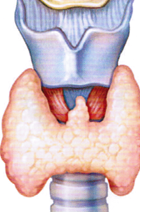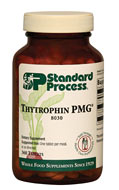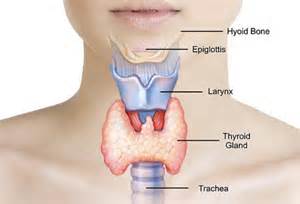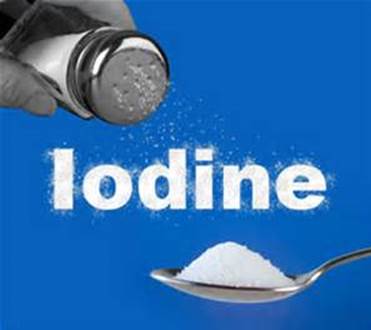How Thyroid Works

|
Plato |
The thyroid is a large endocrine gland located in the neck. This gland has two lobes that lie near the windpipe or trachea. They are joined together by a narrow band of thyroid tissue, known as the isthmus. Brownish-red in color, the thyroid is rich with blood vessels. Nerves important for voice quality also pass through the thyroid. In most people, the thyroid cannot be seen or felt. The thyroid gland has 2 main types of cells:
- Follicular cells use iodine from the blood to make thyroid hormone, which helps regulate a person’s metabolism.
- C cells (also called parafollicular cells) make calcitonin, a hormone that helps control how the body uses calcium.
While most people do not think much about the function of the thyroid, this gland can have a profound impact on both the physical and emotional wellbeing of the individual. Centrally located at the base of the throat, between the brain and rest of the body, the butterfly-shaped thyroid gland helps maintain overall balance in the body. Working in conjunction with the hypothalamus and pituitary gland, the thyroid helps to control a number of body functions that are extremely important, such as body metabolism, breathing and the production of several hormones that regulate various body systems.
The thyroid synthesis and secretes two hormones T4 and T3 under the influence of TSH (thyroid - stimulating hormone) that is produces by the pituitary gland. The hormones of the thyroid T4 andT3 influence the metabolism of each and every cell in our bodies. T3 is the thyroid hormone that our cells recognize best; it is actually the only biologically active thyroid hormone in the body. T4 can be thought of as a “preparatory” hormone for T3; T4 is converted into T3 in the liver and kidneys. The thyroid synthesizes thyroid hormones from the mineral iodine and the amino acid tyrosine. Under the influence of TSH, thyroid follicular cells sequentially perform the following functions:
- Transport of iodine from serum into the cells
- Oxidation of iodine and iodination of tyrosine residues
- Synthesis of T4 and T3
The conversion process of thyroid hormone is a series of events. When T3 and T4 are low in the bloodstream, the part of your brain known as the hypothalamus - the “command center” for most hormones - sends a message in the form of TRH to the pituitary gland. Functioning as a sort of “halfway house” between the brain and the endocrine system, the pituitary gland interprets the message to secrete more TSH (thyroid - stimulating hormone), which in turn, prompts your thyroid gland to take up iodine, and the amino acid, tyrosine, to produce more T3 and T4. If your thyroid hormones range too high, the hypothalamic and pituitary signals become much quieter until your thyroid hormones are in balance again. With its elegant system of checks and balances, your body has the natural tendency to restore thyroid balance. So as long as your hormonal system is fairly well balanced and your thyroid is properly supported, it will generally move toward its default “normal” state. This support becomes increasingly important as we age.
- Metabolism
- Brain development
- Breathing, heart and nervous system function
- Blood cell production
- Muscle and bone strength
- Body temperature
- Menstrual cycles
- Weight gain and loss
- Cholesterol levels
- Skin hydration
- Why when your thyroid isn’t functioning properly, your life can seem significantly off
- Why even mild thyroid weakness can have harmful effects on the body
- When your thyroid gets dysfunctions with many symptoms
- Why your weight becomes spongy and waste with thyroid dysfunctions
- What surprising symptoms a sluggish thyroid produce
- What are the most common cravings with the thyroid problems
- What are the 3 stages of thyroid problems
- What are 4 harmful things that wreak havoc on thyroid












